The alternative GCSE options booklet
Created for year 9 by current GCSE students
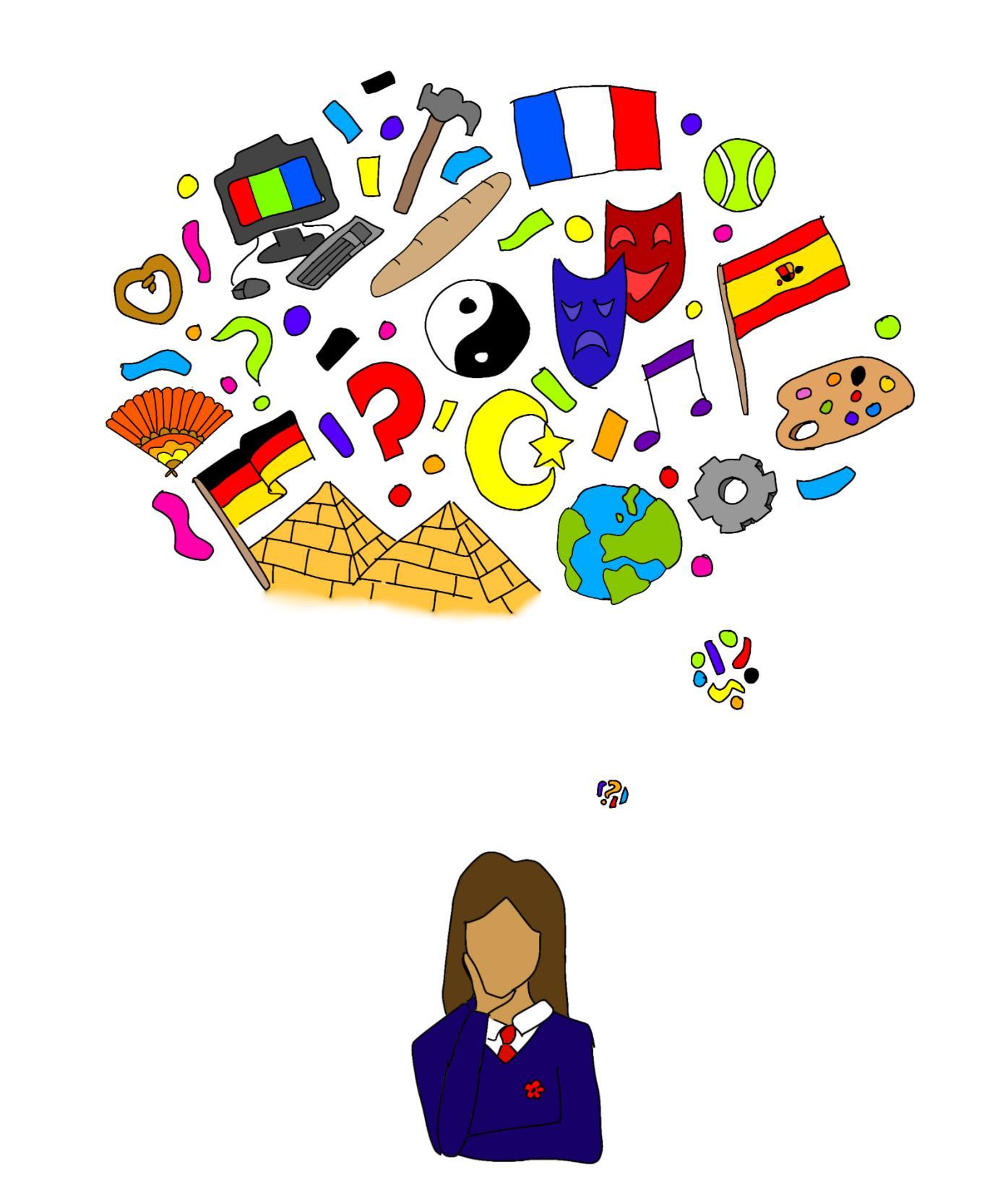
Welcome to the alternative options booklet!
Usually, we would be able to chat to you at options evening and let you know a bit more about how it feels to study each of the GCSE subjects.
As this isn't possible this year, we have gathered information from students in year 10 and 11 to try and give you a feel for each of the GCSE subjects. We hope you find it helpful!
Annabel, Emily, Fiyin, Hannah, Isabel, Alice, Maryam, Shree, Grace, Diveka, Elinor and Jessica
Advice from KS4 students on choosing your option subjects
‘Pick the subjects you enjoy; you’re going to be studying them for 2 years! Don’t make decisions based on what your friend is doing’
‘Choose what you enjoy, not what you think will be easy or what other people might want you to do’
‘Whatever subjects you take, as long as you are actually interested in it and you learn more about it, it will be a good subject to take’
‘Do not worry! It’s difficult when you try and look at it in the long term but think about what you enjoy and what might be interesting’
‘Talk to your teachers about their subjects at GCSE but keep in mind they are trying to recruit people to choose their subject!’
‘Do what you enjoy but don’t stress over it too much. You may enjoy some subjects a lot more than you did in KS3’
‘Make sure you have a good balance of essay/mostly written subjects with practical subjects, so you have a sensible workload’
‘Don’t stress if you don’t know what you want to take. I did because I thought it would define my A level choices and the whole rest of my life, but it doesn’t!’
‘Don’t just choose a subject because you’re good at it now. The courses are quite different from KS3 and you might become better at different subjects so take the ones you enjoy!’
‘Choose things you enjoy and are passionate about’
What Do You Enjoy About Taking Art?

I love taking art, as it is very relaxing and calming. It’s nice to be able to take a break from the more academic subjects and focus on something more creative and independent. You are given so much freedom to do what you love and explore art, it’s a way to express yourself in a helpful, supportive environment. You can use your friends for inspiration, and can easily see your progress, allowing you to feel incredibly productive as well as relaxed at the end of the lessons.
What Are Your Top Tips for Taking Art at GCSE?
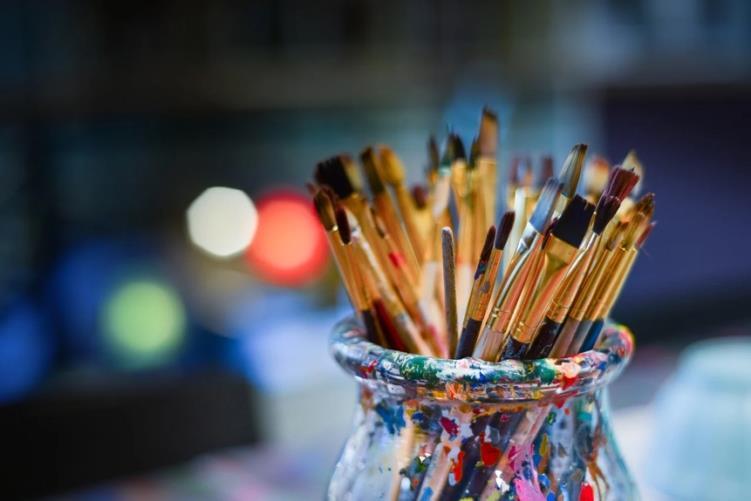
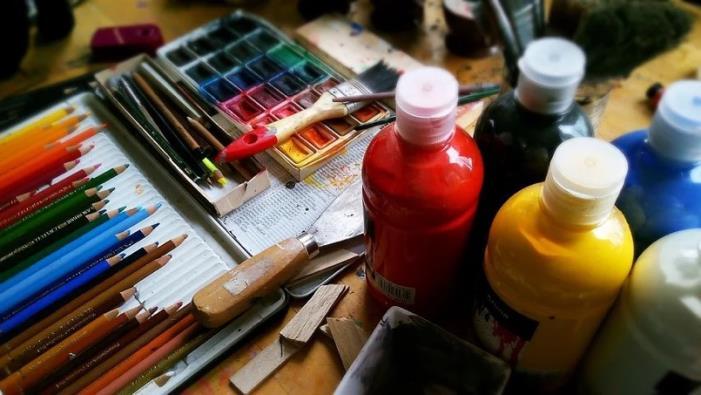
Have good time management, use lesson time well and make sure you do the work outside of school as well
Keep on top of the work, don’t fall behind on deadlines
Make the work your own, and don’t worry about comparing it to other people’s
Have fun, be passionate, and enjoy it!
How is GCSE Art Different from at KS3?
• You are given much more freedom to pursue your own interests and do the things you love.
• The work is much more detailed, and you learn more skills that you can incorporate into your own work.
• There is quite a lot more course work, so you do have to spend a bit more time on homework.
• You are given more space and freedom, with the teachers there to help and guide you and offer support.
COMPUTING
About gcse computing
GCSE Computing not only covers the logical side of computing, but also the practical side as well. You’ll learn about coding and computational thinking, and also things like how computers actually function and the components that make up computers. It also helps you to think logically and efficiently, and also understand how the modern world works. It’s challenging but also really interesting and good fun!
How is it different from KS3?
Being a GCSE subject, you’ll have more lessons per week, which means there’s more continuity within the subject. GCSE Computing builds on KS3 topics in a lot more detail, and there is quite a bit more theory than lower years. It’s quite challenging, but that makes the lessons really compelling.
What students enjoy about the subject
“It’s interesting to learn about how computers work”
“It helps to develop your problem-solving skills”
“It’s logical and easy to revise”
“Even if you’re not good at coding don’t let it put you off as you’ll learn, a lot better at GCSE as you have more lessons a fortnight”
Top tips to succeed
Concentration is key, make sure you understand and ask if you aren’t sure, write lots of notes, use subject terminology and go into lots of detail when answering questions.
What do you enjoy about GCSE Design & Technology?


• “It’s a lot of fun to be creative and design whatever you want. It’s interesting to explore and learn about different materials. The skills we learn in design could be very useful in life.”
• “I enjoy the practical element and I enjoy how the work is laid out in a booklet, so you can look ahead to see what you are going to be doing.”
• “The creativity that goes into it”
• “A large portion of your final grade is coursework which makes your final GCSE much less daunting.”
In what ways is GCSE Design & Technology different from KS3?
• “There’s a lot more opportunities to be creative and make your own thing because the brief is less restricting than in KS3.”
• “It does feel more laid out and structured in blocks but compared to last year there are no major differences.”
• “It’s not very different as the training that goes into it is mainly done in KS3.”
• “You look into the processes of producing materials and then study them which I find really interesting!!”
What are your top tips for success in GCSE Design & Technology?
• “Think outside the box. Be creative and ambitious with your design choices because a boring product is not impressive.”
• “make sure you complete the ILEs and that your entire booklet is completed to the best standard - how good it is does count towards your GCSE mark as it is the coursework.”
• “Be as creative as you can because the original ideas get marked the highest.”
• “Stay on top of coursework as meeting deadlines is essential.”
ENGINEERING
GCSE Engineering builds on everything we learnt during KS3 however we learn how things work more in depth. The format is quite similar to KS3 (theory and practical), but you are given a lot more freedom in the practical’s and you get to be as creative as possible. Moreover, when we do our practical, we have the opportunity to use more high-tech equipment. Also compared to KS3, there is more detailed theory to learn, such as some equations and methods of manufacturing. It is really similar to physics and maths, so if you enjoy those subjects then you should totally go for it!
“Moreover, you get to be more independent and creative work where you design and make the product you want to.”
“I think the smaller groups make the subject more enjoyable compared to KS3.”
HOW IS IT DIFFERENT FROM KS3 TOP TIPS FOR SUCCESS
A top tip for success in this subject is by being organised with your work. Another tip is to manage your time well especially when doing your practical. This can be achieved if you stay on task so that the practical work is completed on time, as it is easy to lose track of time. Last but not least, be organised with your work and keep all your books from previous years!!!
“Work hard! Don’t be afraid to ask for help. Listen to the advice given as it is always very useful.”
“As you learn the spec, make little revision notes as this will help you for your end of year exams. I like to do small practical things to help me understand what we learn more.”
WHY I LOVE ENGINEERING
I like Engineering because it’s consists of interesting theory and practical work. I like that is quite independent, especially whilst doing our practical, because you’re given a lot of freedom to work on your own ideas and you get to enjoy the hands-on part of this subject. Moreover, I really enjoy the theory work as there are a lot of examples where you recognise things you learn about in real life.
“During the NEA, everyone is really supportive of each other and willing to help each other if you struggle. You also have a lot of control over the way you work, and Mrs Sandbach is very understanding and supportive if you are struggling”
GEOGRAPHY
ABOUT GCSE GE0GRAPHY

Studying GCSE geography will allow you to explore the interaction between people and their environment – exploring the social, economic, and political dimensions of current global challenges and how we can tackle them. Understanding the integration of physical and human geography, the increasingly fragile yet interdependent relationship between societies and the environment, has never been more important than it is today. Considering key themes such as the economic world, resource management and the challenge of natural hazards, GCSE geography will provide you with the skills and experience to progress onto A-level and beyond.
HOW IS IT DIFFERENT FROM KS3
The GCSE builds on everything learnt during KS3, going into each topic in more depth and detail. KS3 is more focused on physical geography while GCSE includes much more human geography looking at economics and demographics in places such as Rio.

‘I enjoy the variety of topics within the subject and how they are relevant to modern life’
TOP TIPS FOR SUCCESS
The GCSE geography course on Moodle has the PowerPoints and worksheets from every lesson along with revision resources so you can review any classwork that you didn’t understand in the lesson or want to look back over. There are also lots of websites that provide extra information like InternetGeography , CoolGeographyand BBC bitesize.

‘I enjoy learning about the different case studies from around the world’


WHY I LOVE GEOGRAPHY
I love that everything you learn throughout this course can be applied to everyday life as we are continually surrounded by and subject to whatever the natural environment throws at us. geography provides you with the skills to decide what to do about it. The case studies show how we have tried to protect societies in the past and how we can learn from that. The fieldwork enables you to put your knowledge into practice. Overall, geography combines aspects of the content learned in biology, chemistry and physics with the political and social issues encountered in history, applying it in the context of the real world.
FACTFILE:
Teachers: Mr Yearnshire and Mr Flory 2 exam papers 2hrs each
History!
What do you enjoy about the subject?
Really interesting topics!!
· Talking ‘around’ the topics many different points of view at once, going really in depth and lots of class discussions!
· You focus on the more modern history America, the inter-war years etc.
· Creates lots of skills that can be used in other subjects
Really nice teachers!
It’s not just textbook history it’s about analysing and understanding our ancestors, why they did what they did, and how it impacts us today.

How is it different from Key Stage 3?
· You do more modern, political and varied history 20th century.
More in depth and more content to learn
Shorter and more specific exam questions, but the teachers are fantastic at helping you adjust!
· More room for your own interpretation less textbook history
It’s about exploring your own point of view and feelings as much as dates and places
Harder exam questions but more interesting topics
Much more exam practice.
Top tips for GCSE History success!!


· Make flashcards as you go along to prevent cramming!! (dates, names, places etc) Timelines are also really good. Try to use these to link history into your everyday life (e.g., read history books!) as this will help you understand it.
· Always keep engaged in lessons even in parts that seem irrelevant, because hearing other people’s opinions can help you develop balanced arguments.
· IF YOU ENJOY HISTORY YOU WILL DEFINITELY LIKE IT AT GCSE AND WILL PROBABLY DO WELL! But if you don’t like it now you are much more likely to find it difficult, so don’t take it because you think you ‘should’
Work hard and get involved!!
Try to learn the dates but don’t get too stressed about them it’s more important to understand the topic as a whole. Talking to people not in your class can help with this.
RSisagreathumanitytochooseasoneofyourGCSEsifyouwouldlove todelvedeeperintoreligion(ChristianityandIslam)andinteresting ethicalvaluesonthewhole.Ithelpsgivewiderknowledgeandcanbea greathelpinthefuturewhenpickingwhattodoforA-levelasitisso broadopensmanywindows.
WHAT TO ENJOY ABOUT RS
It’s fascinating because not only is it about religion but also morals and culture and you have time to express your own ideas and see other beliefs on different concepts. You get to think about philosophical ideas and religious viewpoints, it’s more sophisticated as it makes you more open-minded and better informed about people’s beliefs.
It is heavy with content but also discussion - based so helps gain insight, making the lessons engaging and captivating.
There is something for everyone whether you want to participate in the discussions or just listen, absorb and write down all the interesting information.
HOW IT DIFFERS FROM KS3
RS is probably the subject at GCSE that differs the most from KS3.
In years 7-9, RS consists of essay questions you do at the end of each term - usually open book and with lots of preparation and help. However, at GCSE it is very different, for the test - it is 4 questions - an A, B, C and D. It is not open book and there are sources of authority that have to be learned for both Christianity and Islam.

There are many marks to be collected in the exams, so good time management and some of those essay writing skills will come in handy for the d-type question. The questions are much more detailed and there is more responsibility and more to memorise but with help from teachers and hard work, you’ll do fine!
TOP TIPS FOR SUCCESS
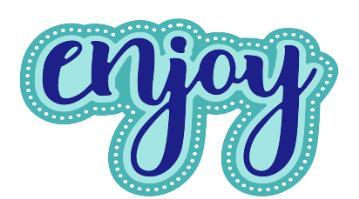

Due to the large amount of content to learn, it is a good idea to make your revision notes early and regularly test yourself on sources of authority/quotes that can be applied to a variety of questions.

Learn how to structure your answers (especially the D-type) to hit top marks and practice questions at home.
Keep your notes neat and concise so they are easy to remember and recall.
Manage your time well to avoid work overload and unnecessary stress.
Top Tips:
Keep going over different topics in order to remember them all.
Do lots of practise questions and definitely look at the mark scheme your teachers give you because some questions require very specific answers. Get your practical work filmed as soon as possible!
Don’t just learn definitions and facts: the part in the exam that gets you the most marks is applying them to sporting situations. You can apply your knowledge to a certain sport in real life. Don’t stress and make sure that you have your three sports. Have a good camera to film your sports (video evidence).
Take this subject if you enjoy being active!
What is most enjoyable about the subject?
• There are practical elements: you choose three sports for the coursework and in the practical lesson you get to do sport.


• The lessons are really fun and it goes well with biology if you like the subject. The teachers are great too.
• The science and the body mechanisms are good, especially if you like biology. The freedom of being able to choose whichever sports you like so the practical side is also nice.
• The teaching is excellent - every lesson is fun and you learn a lot.
• What is
different
from KS3?
· There is much more theory work in the lessons as the course is 60% theory. The theory is also very different to what you do in years 7, 8 and 9.
It is much more interesting and in detail as the topics are really engaging.

There are more tests, however that will the same for all of the subjects.
I was worried about the theory being boring, but it is actually the opposite! For me, I find the theory really interesting. In practical lessons you have more choice too. For example, I didn't want to do dance, so I did badminton instead.
FRENCH
ABOUT GCSE FRENCH
GCSE French is very interesting and enjoyable. You learn French by using so many different techniques, including online resources and revision skills.
HOW IS IT DIFFERENT TO KS3
GCSE French isn’t really too different than KS3 French. You still use STUDIO as your main workbook as well as the style of learning is very similar. It is a balance between learning new vocabulary to new tenses to revisiting past topics in more depth and lots more!
‘GCSE French is a lot freer, as in you can have discussions in French about anything at it's all relevant to your GCSE's. in ks3 it was very limited to what would be on tests, but for GCSE it's about the whole language.’
TOP TIPS FOR SUCCESS
‘Little and often!! You will do better in the French tests that you do a few small revision sessions for than when you do a big chunk of revision in one go. And start doing a little revision early, as you don't want to get to Y11 and have forgotten everything from Y10.’
‘Try and maintain and build on language skills outside of lessons, using things like Memrise for even just 5 minutes a day makes all the difference for learning your vocab.’
‘Go over what you have done whether that’s on Seneca or just covering up words and copying them out to get accents right etc.’
WHAT CURRENT GCSE STUDENTS ENJOY ABOUT FRENCH…
‘Although it is quite a difficult subject, it's very satisfying once you've got the hang of it a bit because it is a very nice sounding language when you speak it out loud! Also, the exchange to Lyon was amazing. And you still get to do fun things like songs and little games in KS4 French lessons which is good!’
‘I love how there is great structure to the French course we do - you methodically work through each module, learning key vocabulary as you go along.’
‘I enjoy the subject because you learn so much about the language and different cultures without even realising. There is always plenty of involvement in the classroom and Mrs Bettsworth always makes French fun.’
What do current GCSE students enjoy about Spanish?
Many GCSE students find Spanish interesting because they enjoy learning about the culture of Spain. They also like learning new vocabulary and the fact that you become more able and find it easier to put together an extended piece of writing or speaking. GCSE students also enjoy the project work that you do in GCSE.


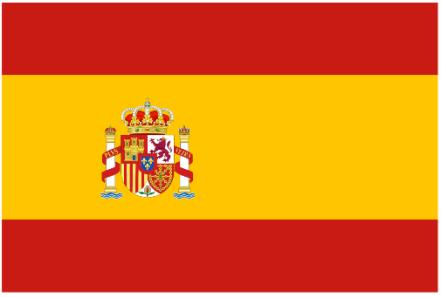
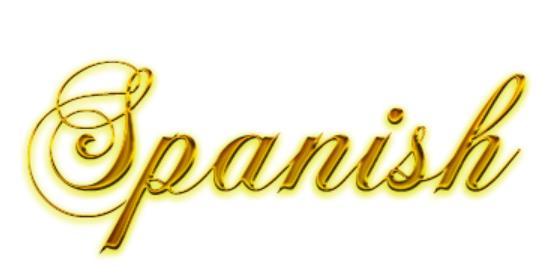

Top tips for Spanish success
In order to do the very best you can at GCSE, you will need to make sure you learn vocab and tenses when you do them in class. Cramming the night before your exam is not a good idea! Try to learn vocab from the very first day, just 10 mins a week is very helpful. Practising translations as you go through the course is a great thing to do because it helps to consolidate what you have learned.
How is it different from the KS3 course?
GCSE Spanish is very similar to the KS3 course with the main difference being that you go into more detail with each topic you cover. At GCSE, you spend more time learning the grammar and tenses. There are also more opportunities in terms of trips and competitions. Many GCSE students find the Spanish lessons very enjoyable. The continuity between lessons is better at GCSE because you have more lessons per fortnight.
Pablo Picasso was a famous Spanish painter
How is it different from the KS3 course?
GCSE German is similar to KS3, but you go into more depth and learn a broader vocabulary. You get used to the language and feel more confident in speaking it. You learn how to write from your point of view and do more individual work. The exchange is really good fun. The topics that we do are quite different and really enjoyable. There are some really great resources that we use at GCSE.
Top tips for German success



In order to do the very best you can at GCSE, you will need to learn lots of vocabulary it is helpful to write down phrases from your lessons. Practice by speaking out loud and writing down paragraphs about what you’ve learnt in class. It’s good to prioritise word order and grammar. Volunteer to speak answers even if you’re not sure because it helps you to learn the language better.
It is interesting to learn about both the language and culture like German traditions, food and schools in comparison to England.
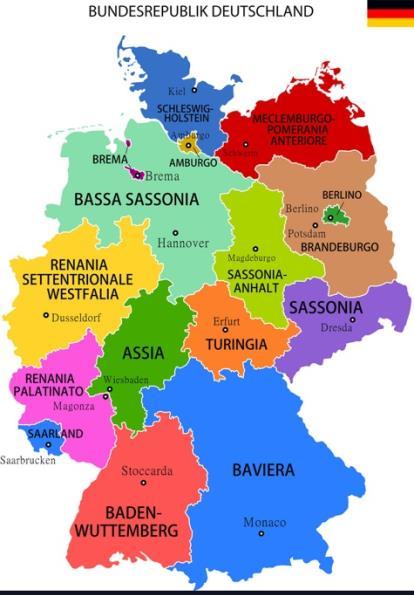
What do current GCSE students enjoy about German?
It’s a very logical subject and students find it easy to pick it up. The topics are fun to learn about and some of them fit in well with other subjects. It’s really interesting to learn about the culture and traditions in Germany. Students enjoy the interactive aspects of the lessons; you get to speak in class, and this helps consolidate learning. Learning to use different tenses is really interesting and helps in using the language more effectively.
ABOUT MUSIC AT GCSE:
Music at GCSE is really fun and interesting. You get to learn about different genres of music and music from throughout different time periods, and how they differ from each other. Lots of the course is based around the set works and studying the contrasting genres each one comes from. The set works cover musical theatre, baroque music and vocal music so there is something for everyone. As well as set works, you have to do performances and composition, both of which you work on in class and get lots of feedback and time to improve. With composition, you learn a lot of new skills and music theory which can help improve your general understanding of music.
HOW IT IS DIFFERENT FROM KS3:
At KS3, you generally don’t get much time to study music, whereas you get plenty of time at GCSE to study music and go through everything, which makes the course feel less rushed and makes it a more enjoyable subject. You learn a lot more in depth about the pieces you study and learn new music theory and get a lot of tricks to help you remember things that you otherwise will have struggled with.

TIPS FOR SUCCESS IN MUSIC:

• Enjoy it!
• Make sure to pay attention, because music will then start to make a lot more sense
• Ask questions, don’t be afraid to ask questions because they will get answered and it will help you understand things better
• Listen to music, it will help you to understand the things a certain genre does a lot which can help in your exam

WHY I LOVE MUSIC:
“It isn't like any other subject I take”
“The lesson is really fun and every lesson you learn different things”
“You learn so much about the skills behind your favourite songs”
“You can make your composition your own unique piece of music”
Here’s what students enjoy about drama:
- ‘I enjoy working with different people and developing my skills–overall it pushes me to be more confident!’
- ‘You have the freedom to do whatever you want with your drama pieces and be however creative you would like to be.’
- ‘The flexible lesson structures are enjoyable, and it’s a welcome break to be able to get up, stretch, and do some practical work instead of being sat at a desk the entire time.’



- ‘The teachers are super helpful with the theory work, making it much easier.’
ABOUT GCSE DRAMA
THE GCSE DRAMA EXAM IS 40% THEORY WORK AND 60% PRACTICAL WORK. For the theory, you will study a text, and then sit an open book exam. For the practical side of the exam, you will perform two pieces one devised, and one scripted. There will also be a logbook for the practical work.
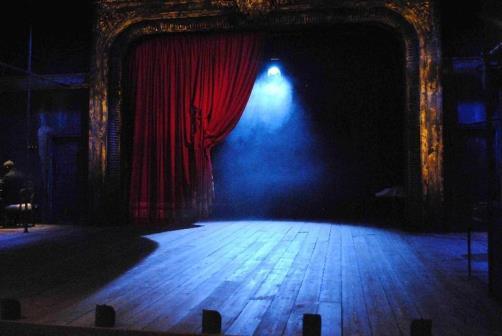
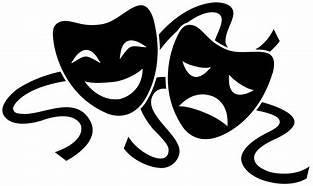
ADVICE -
GCSE Drama, on the whole, truly isn't that hard. As with most subjects, the best possible advice I could give you is to listen, do the best you possibly can, complete all the work, and most importantly enjoy it. Don’t let the daunting prospect of exams becoming daunting – it’s a fun subject, so make the most of it. The theory work isn’t as scary as it sounds– don’t let the idea of it put you off! Stay organised and on top of your work, know the specification and what you need to know, talk to your peers and work with them, don’t hold back and give it all you’ve got. There’s nothing more anyone could ask of you.
HOW IS IT DIFFERENT TO KS3?
There are quite a few ways in which the course changes as you move into year 10. To start with, much more freedom is allowed and many decisions about performances are for you to make. There is also a set text, which will be new to you, and you will study this play in depth. Theory is also studied in GCSE Drama, and this along with the set text will be what comes up on your written paper. There is definitely more writing involved (similar to English Literature) and more on acting techniques. Another big change is that you get way more lessons!






































